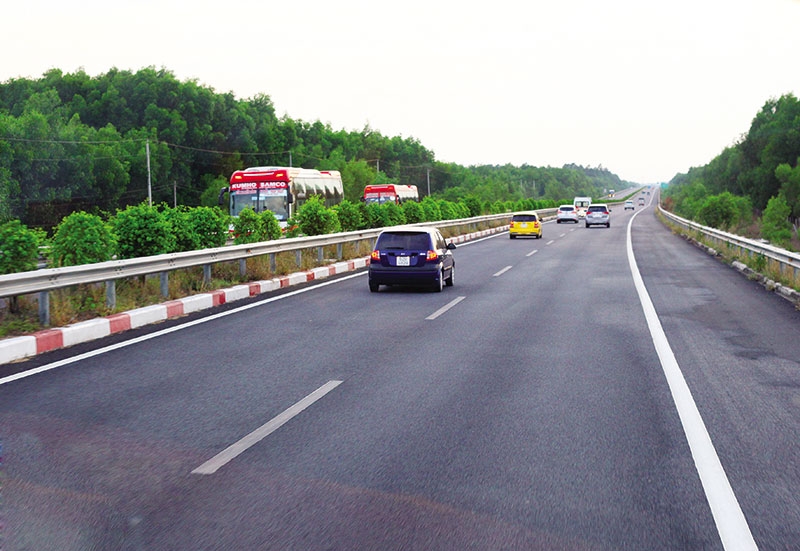New decree aims to get rid of PPP impediments
 |
Vaibhav Saxena, consultant of Vietnam International Law Firm, delves into its positive changes and explains the challenges ahead.
Investment in the public-private partnership (PPP) model
The Vietnamese government encourages investment in the sectors of transportation, power plants, transmission lines, lighting systems, clean water supply systems, water drainage systems, sewage collection and disposal systems, parks, housing, parking lots for vehicles and machines, cemeteries, head offices of regulatory agencies, social housing, public housing, resettlement housing, healthcare, education, training, cultural activities, sports, tourism, science and technology, meteorology and hydrology, the application of information technology, infrastructures for commercial and urban zones, economic zones, industrial zones, high-tech zones, concentrated information technology zones, incubators, technical organisations, common working areas for small- and medium-sized enterprises, agriculture and rural development, services for enhancing the correlation of agricultural production with farm product processing and sales, and other sectors decided by the prime minister.
For projects of national significance, the National Assembly is the sole approval authority, while the prime minister can authorise investments in certain types of Group A projects, which receive capital from the state budget, including build-transfer (BT) projects. Regarding cases other than the aforementioned ones, ministry-level agencies can authorise those projects.
Positive changes
Decree 63 has clearly specified the authority, orders, and procedures of decisions for investment plans of PPP projects. In particular, the order and procedures for the implementation of PPP projects of high-tech applications are clearly regulated to create flexibility in the implementation process and save time, while reducing costs during the project formulation phase.
Decree 63 has removed the procedures for granting investment registration certificates as well as supplemented the regulations on disclosure of the information on project agreement to ensure that all information regarding the projects are transparent. It also equipped the state management agencies with tools to manage information and databases on PPP projects.
Under Decree 63, the equity capital contribution of the investors in a PPP project must be at least 20 per cent of the investment capital, up to VND1.5 trillion ($70 million), plus at least 10 per cent of the portion of investment capital exceeding VND1.5 trillion ($70 million). With regards to BT projects, the investors must satisfy the requirements on the owners’ capital as per Vietnamese laws.
The capital contribution of the state in PPP projects shall not be included in the total investment capital to determine the amount of the equity capital contribution of the investors. State funding for the projects shall be derived from the state budget, government bonds, municipal bonds, official development assistance, concessional loans from foreign sponsors or other properties. Regarding transferring projects, under Decree 63, investors can only transfer partial or entire rights and duties of a project to a lender or another investor if the construction is complete or the project is operational, without making changes to the scale, objectives, or technical standards of the transferred projects as well as the investment conditions.
 |
| With Decree 63 taking effect soon, the local authorities are hopeful for PPP investments to pick up Photo: Le Toan |
Investment incentives and guarantees
Investors making investments under the PPP model shall enjoy preferential corporate income tax rates, reduction and/or exemption of land rental fees during the implementation, incentives for goods imported for the execution of projects in compliance with the laws on export and import tax, and other incentives as per current laws.
Investors shall be guaranteed a supply of raw materials, consumption of products and services, and other contractual obligations of the investors from competent authorities.
Investors may mortgage their property, land use rights, and the right to operate the project as long as the mortgage does not affect the target, scope, technical standards, and progress of the project as well as other conditions specified in the project contract. With regards to the use of land, the land use purpose shall be guaranteed to remain unchanged during the execution of the project contract, despite the lender’s takeover of the project.
Moreover, investors shall be entitled to purchase foreign currency at credit institutions and enjoy provisions of public services such as the right to use land, roads, and other public works. Most importantly, they shall receive guarantees on ownership of property.
Settlement of disputes
A dispute between a competent state agency or an economic organisation participating in the project and an investor shall first be resolved through negotiation or mediation. If such a dispute is not resolved by amicable settlement measures, arbitration or a Vietnamese court shall take charge. However, international arbitration shall be allowed in cases where the foreign investor holds at least 51 per cent or more of the investment capital.
The opportunities for foreign investors
With the shortened and simplified procedures for PPP projects, it will be easier for foreign investors to approach the Vietnamese regulations regarding PPP.
The appointment of contractors in PPP projects is not removed. Hence, with the selection through a bidding progress, the opportunities for foreign investors will be fair and mainly based on the capacity of the contractors.
Decree 63 has extended the scope of the state’s funding for the project, as the state is now entitled to use other sources to contribute to supporting the investors in PPP projects. The scope of funding for payment to the investor(s) under build-transfer-lease and build-lease-transfer agreements is also expanded. Accordingly, Decree 63 has created conditions favouring the flexibility of relevant ministries, regulatory bodies, and municipal and provincial people’s committees.
Regarding investment incentives, investors are given investment incentives as well as guarantees from the competent authorities.
Remaining challenges
There are still some obstacles existing in the implementation of PPP projects that investors need to take note of, such as the adequacy of the legal framework, project structuring and tax planning, implications of double taxation avoidance agreements, lenders’ risk appetite in Vietnam as an emerging market, depth of market participants and unpredictable investment, preparation costs, land acquisition, protracted negotiations over risk allocation, level of public sector expertise to negotiate deals in an efficient and timely manner, requiring that the Ministry of Planning and Investment and competent authorities co-operate on consistent approaches to key issues, for example a robust pipeline of “bankable” PPP projects, transparent and efficient bidding processes, standardised risk allocations, and project documentation.
What the stars mean:
★ Poor ★ ★ Promising ★★★ Good ★★★★ Very good ★★★★★ Exceptional
Related Contents
Latest News
More News
- Vietnamese businesses diversify amid global trade shifts (February 03, 2026 | 17:18)
- Consumer finance sector posts sharp profit growth (February 03, 2026 | 13:05)
- Vietnam and US to launch sixth trade negotiation round (January 30, 2026 | 15:19)
- NAB Innovation Centre underscores Vietnam’s appeal for tech investment (January 30, 2026 | 11:16)
- Vietnam moves towards market-based fuel management with E10 rollout (January 30, 2026 | 11:10)
- Vietnam startup funding enters a period of capital reset (January 30, 2026 | 11:06)
- Vietnam strengthens public debt management with World Bank and IMF (January 30, 2026 | 11:00)
- PM inspects APEC 2027 project progress in An Giang province (January 29, 2026 | 09:00)
- Vietnam among the world’s top 15 trading nations (January 28, 2026 | 17:12)
- Vietnam accelerates preparations for arbitration centre linked to new financial hub (January 28, 2026 | 17:09)

 Tag:
Tag:




















 Mobile Version
Mobile Version